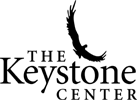Channels
Special Offers & Promotions
New report aims to improve the science behind regulatory decision-making
publication date: Sep 28, 2012
|
author/source: American Chemical Society
Scientists and policy experts from industry, government, and nonprofit sectors reached consensus on ways to improve the rigor and transparency of regulatory decision-making in a report being released today.
 The Research Integrity Roundtable, a cross-sector working group convened and facilitated by The Keystone Center, an independent public policy organization, is releasing the new report to improve the scientific analysis and independent expert reviews which underpin many important regulatory decisions. The report, Model Practices and Procedures for Improving the Use of Science in Regulatory Decision-Making, builds on the work of the Bipartisan Policy Center (BPC) in its 2009 report Science for Policy Project: Improving the Use of Science in Regulatory Policy.
The Research Integrity Roundtable, a cross-sector working group convened and facilitated by The Keystone Center, an independent public policy organization, is releasing the new report to improve the scientific analysis and independent expert reviews which underpin many important regulatory decisions. The report, Model Practices and Procedures for Improving the Use of Science in Regulatory Decision-Making, builds on the work of the Bipartisan Policy Center (BPC) in its 2009 report Science for Policy Project: Improving the Use of Science in Regulatory Policy.“Americans need to have confidence in a U.S. regulatory system that encourages rational, science-based decision-making,” said Mike Walls, Vice President of Regulatory and Technical Affairs for the American Chemistry Council (ACC), one of the sponsors of the Keystone Roundtable. “For this report, a broad spectrum of stakeholders came together to identify and help resolve some of the more troubling inconsistencies and roadblocks at the intersection of science and regulatory policy.”
Controversies surrounding a regulatory decision often arise over the composition and transparency of scientific advisory panels and the scientific analysis used to support such decisions. The Roundtable’s report is the product of 18 months of deliberations among experts from advocacy groups, professional associations and industry, as well as liaisons from several key Federal agencies. The report centers on two main public policy challenges that lead to controversy in the regulatory process: appointments of scientific experts, and the conduct of systematic scientific reviews.
The Roundtable’s recommendations aim to improve the selection process for scientists on federal advisory panels and the scientific analysis used to draw conclusions that inform policy. The report seeks to maximize transparency and objectivity at every step in the regulatory decision-making process by informing the formation of scientific advisory committees and use of systematic reviews. The Roundtable’s report offers specific recommendations for improving expert panel selection by better addressing potential conflicts of interest and bias. In addition, the report recommends ways to improve systematic reviews of scientific studies by outlining a step-by-step process, and by calling for clearer criteria to determine the relevance and credibility of studies.
“Conflicted experts and poor scientific assessments threaten the scientific integrity of agency decision making as well as the public’s faith in agencies to protect their health and safety,” said Francesca Grifo, Senior Scientist and Science Policy Fellow for the Union of Concerned Scientists. “Given the abundance of inflamed partisan dialogue around regulatory issues, it was refreshing to be a part of a rational and respectful roundtable. If adopted by agencies, the changes recommended in the report have the potential to reduce the ability of narrow interests to weaken regulations’ power to protect the public good.”
The Keystone Center and members of the Research Integrity Roundtable welcome additional conversations and dialogue on the matters explored in and recommendations presented in this report.
For more information, access the Roundtable’s website at www.Keystone.org/researchintegrity
About The Keystone Center
Founded in 1975, The Keystone Center is an independent nonprofit organization that brings together public, private, and civic sector leaders. We provide mediation and facilitation services that incorporate innovative decision-making methods. The result: action-oriented, sustainable solutions to complex energy, environmental, and public health issues.
As we engage leaders of this generation, we also educate the next, providing teachers and students with meaningful outdoor learning experiences that inspire scientific inquiry, leadership development, and civic engagement.
Media Partners


